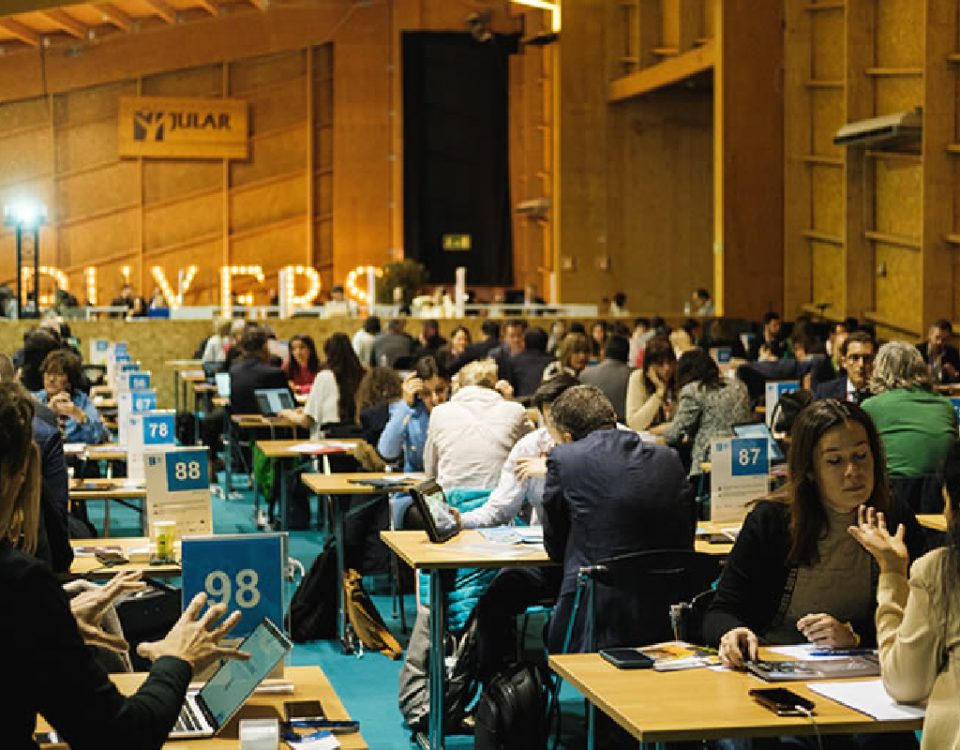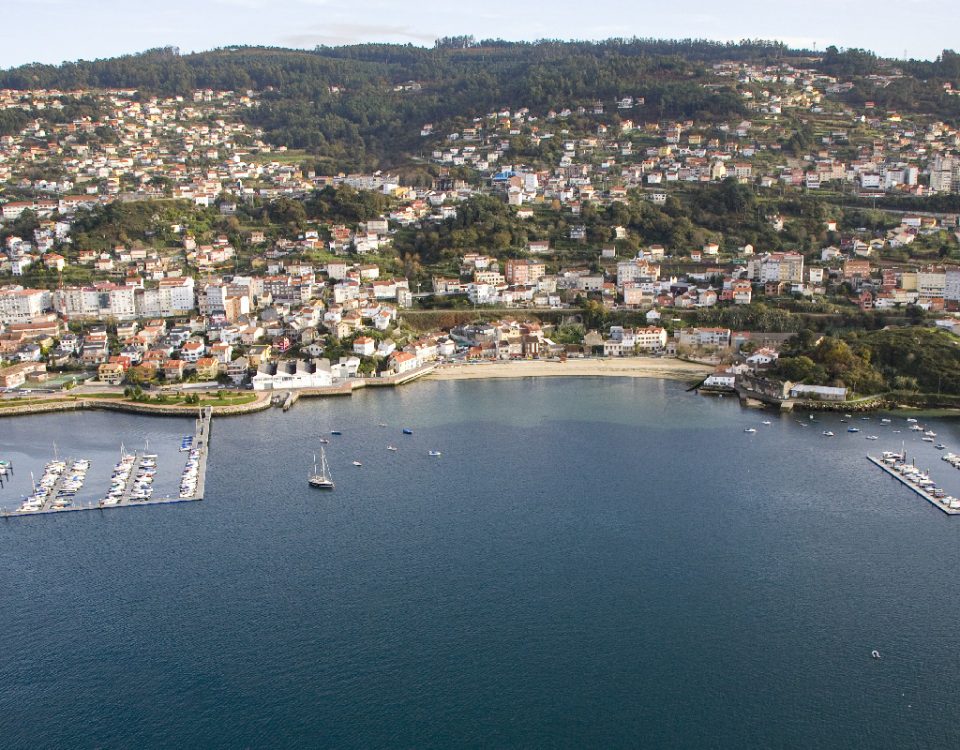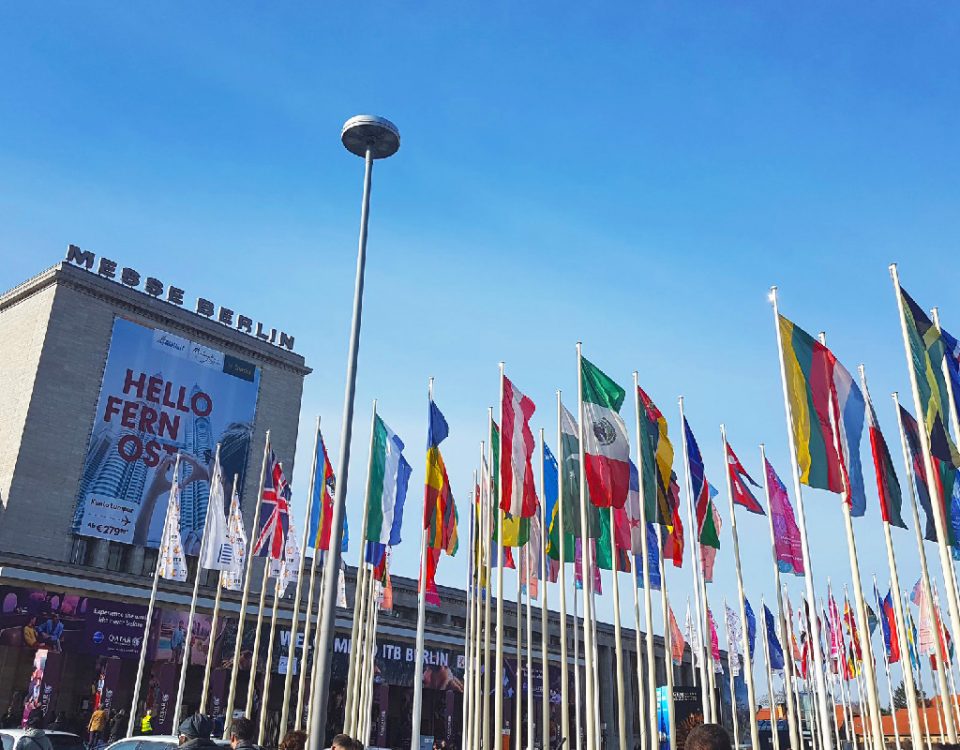- El mejor turismo de galicia
Exceltur reveals the growing contribution of tourism to the Galician economy by generating 6,341 million euros, with a rise of 9.6%.
Exceltur reveals the growing contribution of tourism to the Galician economy by generating 6,341 million euros, with a rise of 9.6%.
The Consellería de Cultura y Turismo and Exceltur, Alianza para la Excelencia Turística, presented today in Santiago de Compostela the Impactur Study for Galicia, which analyses at the retail level the economic impact of tourism on the economy and employment of the Community. The executive vice-president of Exceltur, José Luis Zoreda, presented the data and conclusions of this research, which shows an outstanding performance of tourism activity and confirms the important role of tourism in Galicia.
José Luis Zoreda shared how the results of this fifth edition show that Galicia’s tourism GDP “recorded an interannual increase of 9.6% in 2017, 8.4% in constant terms (after discounting the effect of prices), up to 6,341 million euros, generating in just one year 553 million additional euros, representing a growth higher than 5.6% real recorded by the entire Spanish tourism sector in the same period.
These levels of activity account for 10.4% of total GDP of the Galician economy and 11% of employment. He also stressed that all components of demand “contributed to this positive balance and were at levels above 2016. And he added: “Above all, the behaviour of foreign demand stood out, which reinforces the bet for this attraction by public and private actors”. He also stressed the “decisive role played by tourism entrepreneurs, creating 7,165 new jobs up to 109,050. This,” he stressed, “thanks to a year-on-year increase in employment of 7% over 2016.
According to those responsible for the study, the relevance of tourism in our productive structure is explained both by its impact on the branches of activity directly in contact with tourism and by its dragging effect on other sectors of the economy. Thus, to the direct effects (hotels, restaurants, travel agencies, car rental companies and passenger transport, leisure services, etc.) must be added the indirect effects in areas such as agriculture and fishing, food supply, construction, textile companies, electricity, water or advisory services. Specifically, this dragging effect is quantified at 2,094 million euros (3.5% of the Galician economy) and 31,430 jobs (3.2% of the total).
Support for the roadmap
Among the causes of these results, Exceltur points to the evolution of foreign demand and tourism consumption of Spaniards, both Galician and the rest of the autonomous regions, in addition to the growth of investment by tourism companies in the Community and the levels of public spending committed to the consolidation and improvement of this activity.
The Councillor for Culture and Tourism, Román Rodríguez, declared that this type of analysis is fundamental for the governance of this activity “under parameters of quality and sustainability that make Galicia a better place to visit and also to live”.
He also stressed that the report endorses the commitment that the Xunta and the tourism sector have been making within the framework of the Galicia 2020 Tourism Strategy. In this regard, he recalled that the regional government considers a key sector of the economy, hence its strong support, now intensified with the creation of a specific council that has a budget of 141 million euros for 2018, 6.2% more than in the previous year.
New competitive challenges
For his part, José María González, president of Exceltur, stressed that Impactur’s results “show how the tourism industry was the main driving force behind the generation of prosperity and employment in Galicia in 2017”. After highlighting the relevant investment bet of the private sector in the last two years, he mentioned the new competitive challenges facing the sector, among which he stressed “the growing competitive environment and the need to continue improving the attraction of tourists and their loyalty, giving continuity to the policy of differentiation of the destination with the generation of high value-added product associated with the brand Galicia, the obligatory coordination with a State vision of the externalities caused by housing for tourist use and the future evolution of the tourist model of the Community, inspired by the management of the most sustainable growth that, without exceeding the load capacities in the destinations, is based on the opportunities of digital transformation of the sector and on achieving the greatest citizen empathy for the sector”.
Faced with this scenario, he encouraged the Xunta de Galicia to continue prioritizing the transversal action of the Government in favor of the tourism sector “to rigorously face the new horizon, which will require intensifying collaboration between public and private actors under a long-term strategic vision, which seeks a new competitive scenario more diversified and differentiated, which brings the greatest added value and ensures maximum social and economic benefits distributed locally among the whole of Galician society.
Impact on other sectors
Impactur also indicates that tourism boosted job creation in Galicia, with an increase of 7%, a figure above the regional average. In particular, the study points out that tourism generated 109,050 jobs in Galicia, 11% of the total of the Community.
As a consequence of higher tourist expenditure and a greater volume of demand, employment grew 4.6% in the accommodation sector, 2.9% in catering, 9.1% in transport and ancillary activities and 3.4% in cultural and recreational activities. In addition, it boosted retail trade associated with trips and excursions by 10.8% and construction by 2.9% due to the increase in public and private investment in the renovation of tourist infrastructures.
71.2% of tourist employment in Galicia is created directly in branches related to tourism and, to a greater extent, its dragging effect on the rest of sectors allows generating the remaining 28.8%. Specifically, 12,641 jobs in retail trade, 13,228 in construction, 2,884 in agriculture and fishing and 7,501 in the various branches of business services.
37.3% more foreign expenditure
As for the sum of tourist consumption, gross formation of human capital and tourist expenditure of public administrations, Impactur underlines an internal increase of 9.6% to 6,955 million euros. In this sense, highlights the consolidation of domestic tourism and a very loyal national tourism, especially from neighboring communities and others such as the Community of Madrid, Andalusia or Catalonia, mainly.
Particularly noteworthy is that the expenditure of foreign tourists rose 37.3% to 1,189 million euros, allowing a gain of 323 million euros in a single year. In the opinion of those responsible for the study, this figure reflects the effort to diversify and attract foreign markets. It also increased the spending of Spanish tourists, as well as the impact of Galicians themselves traveling in the Community, with a rise of 6.6%.
Greater public and private investment
Business investment was also strengthened, with a year-on-year improvement of 2.5% to 1,105 million euros. In Exceltur’s opinion, this was made possible thanks to greater confidence among Galician tourism companies, attributed in the study to the favourable evolution of the sector’s aggregate figures and to the recovery of business profit margins.
In the same percentage the current expenditure of public administrations in the field of tourism increased to 520 million euros. To the respect, Exceltur affirms that this improvement derives mainly from the effort made in the budgetary increase of the Xunta de Galicia in the programs of public expenditure linked to the ordering and promotion of the tourism, civil protection, health and formation of the professionals to offer a better service to the visitors.
Finally, the study reveals that taxes collected and linked to tourism amounted to 1,363 million euros, representing 10.4% of the total and above the previous year.
This study calculates the socio-economic impact for the Community as a whole and allows for comparison with the Spanish Tourism Satellite Account prepared by the INE and with that of other territories that follow the same methodology. The indicators derived from Impactur are essential to measure the main direct and indirect effects of the tourism sector on the Galician economy in terms of GDP generation, employment, capital investment, taxes, as well as multiplier effects on other sectors.









